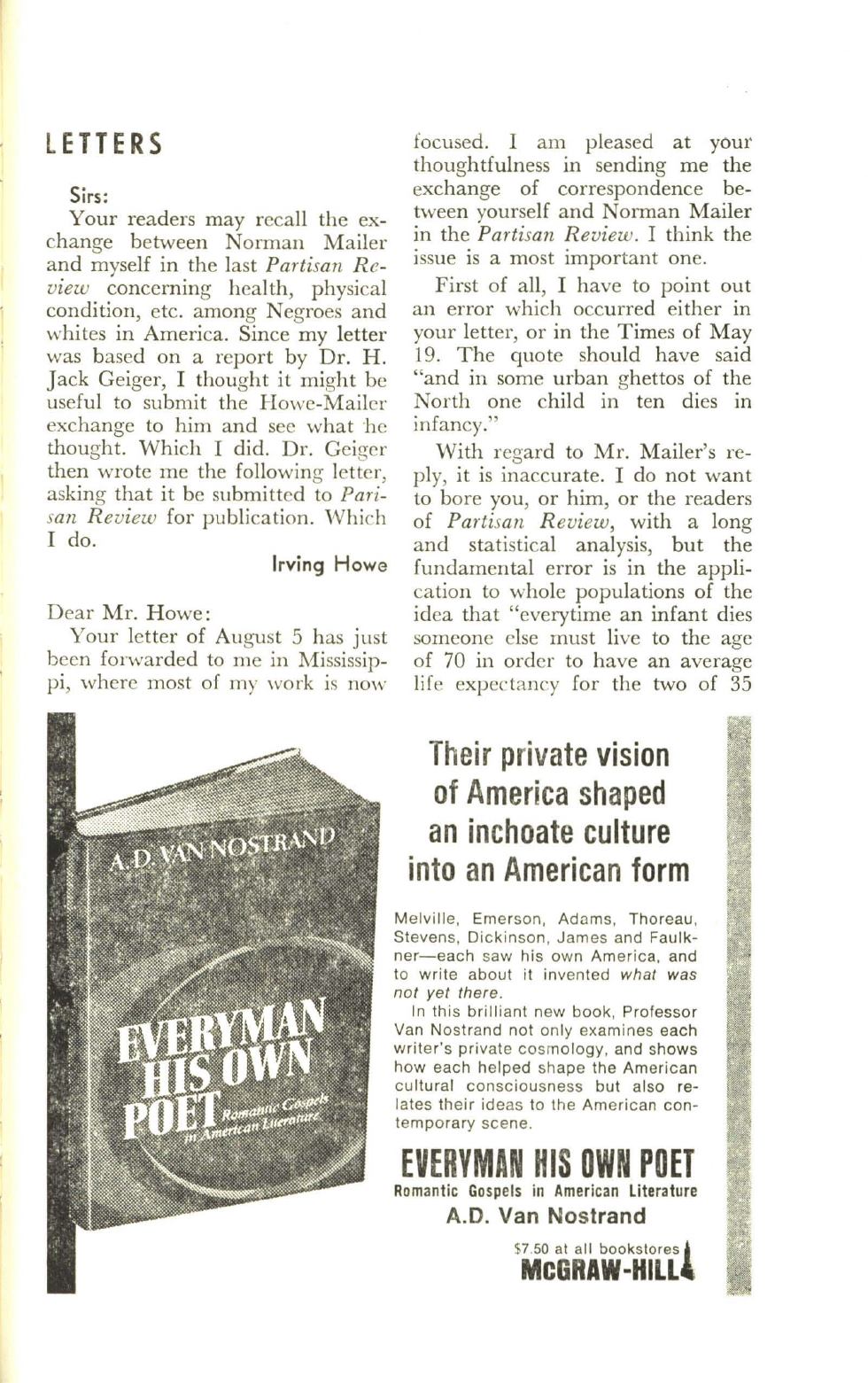
LETTERS
Sirs:
Your readers may recall the ex–
change between Norman Mailer
and myself in the last
Partisan R e–
view
concerning health, physical
condition, etc. among Negroes and
whites in America. Since my letter
was based on a report by Dr. H.
Jack Geiger,
I
thought it might be
useful to submit the Howe-Mailer
exchange to him and see what h e
thought. Which
I
did. Dr. Geiger
then wrote me the following letter,
asking that it be submitted to
Pari–
san R eview
for publication . Which
I
do.
Irving Howe
Dear Mr. Howe:
Your letter of August 5 has just
been forwarded to me in Mississip–
pi, where most of my work is now
focused. I am pleased at your
thoughtfulness in sending me the
exchange of correspondence be–
tween yourself and Norman Mailer
in the
Partisan Review .
I
think the
issue is a most important one.
First of all,
I
have to point out
an error which occu rred either in
your letter, or in the Times of May
19.
The quote should have said
"and in some urban ghettos of the
North one child in ten dies in
infancy."
With regard to Mr. Mailer's re–
ply, it is inaccurate.
I
do not want
to bore you, or him, or the readers
of
Partisan Review,
with a long
and statistical analysis, but the
fundamental error is in the appli–
cation to whole populations of the
idea that "everytime an infant dies
someone else must live to the age
of 70 in order to have an average
life expectancy for the two of 35
Their private vision
of America shaped
an inchoate culture
into an American form
Melville, Emerson, Ad ams, Thoreau,
Stevens, Dickinson, James and Faulk–
ner-each saw his own America, and
to write about it invented
what was
not yet there.
In this brilliant new book, Professor
Van Nostrand not only examines each
writer's private cosmology, and shows
how each helped shape the American
cu ltural consciousness but also re–
lates their ideas to the American con–
temporary scene.
EVERYMAN HIS OWN POET
Romantic Gospels in American
Literature
A.D. Van Nostrand
$MCGRAWo~HlrLl


